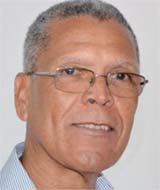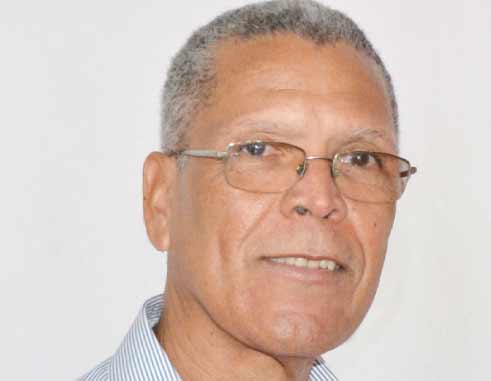‘The Media is to be encouraged in its quest for information and in its challenges of government policy, as it is the robustness of government’s responses that will lead to confidence in our governance’

No, not the weather systems that affect us, but the atmosphere in which we now seem to be conducting the business of our country must change. We seem to be caught in a “toubouyon”, a whirling maelstrom of events that leaves our senses battered and dazed, but does little to eventually cleanse the air or contribute to our well-being.
We are told that part of the reason for this state of affairs is that an election is around the corner, but nothing can excuse the unsavoury climate that currently prevails in the country, or can excuse the uncouth manner in which we now treat one another.
As if we do not have enough issues facing us – economic growth, debt, fiscal deficits, crime, justice, policing, education, health care, to name a few – we have now heard from one of our seasoned journalists that the freedom of the media to report and comment on our governance is under threat. In making this statement that journalist is supported by at least one veteran journalist, and by commentary in this newspaper.
Difficult as it may be to provide evidence of the interference that is the subject of their complaints, the bigger problem is that even if no evidence is produced, the journalists’ perception that the media is under threat is probably just as damaging as any actual threat at all. This threat to the media, whether perceived or real, can at best lead to considerable discomfort in the reporting of the news, and at worst result in its self-censorship.
Whichever the result, the country will suffer from a decrease or absence of debate of the issues facing us, a debate that, coincidentally, the governing party is proposing should be held under the auspices of the UWI Open Campus as part of the election campaign. Debate is essential to good governance, and it should not be restricted to the period immediately prior to an election.
We don’t however have to continue living in the current climate, and it may be useful to consider some examples of the benefits of such debate. Space did not permit in an earlier article, but when considering some of the persons who somehow made one feel proud, another lady had captured attention at the time. She is a politician, from French Guiana (Cayenne), and her name is Mde. Christiane Taubira.
Mde.Taubira is black, wears her hair in cornrow, and has had to withstand racist taunts during her political career in France. Largely responsible for the passage of a law in France which recognizes the slave trade and slavery as a crime against humanity, until recently, Mde.Taubira was France’s Minister of Justice.
She rose to full prominence this year when she publicly objected to a proposed amendment to the French Constitution that would have seen French born nationals, convicted of terrorist activity in France, stripped of their French nationality when they were also nationals of another country. Even while publicly disagreeing with her government, Mde. Taubira however maintained cordial relations with the President and with members of the Cabinet.
Next though, the President of France sought to have the proposed amendment passed into law, at which point Mde. Taubira resigned. Having travelled from Cayenne to Paris and risen to the top level of French Government, Mde. Taubira stood on principle, turned her back on her achievements, and left. Within a month of her resignation however, the French President was forced to withdraw the proposed amendment to the Constitution.
A further contribution to debate comes from son of the soil Dr. Tennyson Joseph, who lectures at the Cave Hill campus of the UWI. Dr. Joseph regularly comments on issues that he feels relevant, and criticizes the Government of Barbados and its Opposition as he considers necessary. While he may receive a light probe and a jab here and there from fellow columnists, he is apparently free to offer his views without interference.
In fact, when Dr. Joseph has been the subject of criticism, it was criticism from the media that the UWI was not commenting sufficiently on matters affecting the Barbadian public, causing him to rise in defence of the institution.
The trouble though is that while the reading of Dr. Joseph’s column is to be encouraged, I rarely find myself in agreement with him. Often, even when I do agree, its more of a “yes, … but”. One such occasion was with Dr. Joseph’s objection to the Government of Barbados removing the concession allowing free university education for Barbadian students. It was easy to agree with Dr. Joseph that this was not desirable, until the Government indicated its problems with balancing the budget.
Next though, the media reported that the subsidy for UWI students amounted to only $35 Million in an approximately $500 Million annual education budget, and the thought that followed was that surely, there must be some room for discussion of this. That thought held until the media then reported that the Government of Barbados owed the UWI $240 Million, and that the Government was making arrangements with the University for settlement of that debt. Apparently the University had not been paid for that “free” Government provided education for a number of years.
What is desirable may not always be achievable, but it is only through the challenge to the Barbados Government’s decision and the ensuing discussion that the issues became ventilated, allowing a clearer picture to emerge.
This is how developed countries around us conduct their affairs, and there is no reason for us not to follow those examples. If there is one factor however that may be contributing to the current climate, it is probably that of the availability of information on the performance of Government on a timely basis.
Not only that, but with the exception of the Customs & Excise and the Electoral Commission websites, Government websites function mostly as telephone directories, and little detail on the individual Ministry’s programmes is available. A visit to the Statistics website takes you to information more than two years out of date, yet more current statistical data is available in the 2014 Economic Review, and the 2015 Review is near due.
These are difficult economic times which require frank and open discussion, discussion that can only be sensibly held with current, accurate information. The media is to be encouraged in its quest for information and in its challenges of Government policy, as it is the robustness of Government’s responses that will lead to confidence in our governance.
With that said, congratulations are due to the Minister of Agriculture on his recent announcement of his Ministry’s renewed commitment to the coconut industry, and his forthright description of the decline of the banana industry which, as he indicated, moved from an employer of 12,000 to less than 1,000 persons today.
It is this frank recognition that hopefully will lead to a sustained commitment to the diversification of agriculture which he mentioned, and to whatever revitalization of the banana industry may be possible.
We cannot survive as a society if we continue to engender a climate that amounts to little more than internecine warfare. We are all scarred by this, and it only sets a platform for self-perpetuation. We can see examples of the likely result of this type of behaviour from a look at our neighbours to the north and to the south, and it is not a road that anyone should want to travel.
We do not need that mayhem; we have to change.
Next, Parallel Worlds Part IV – Renewable Energy











